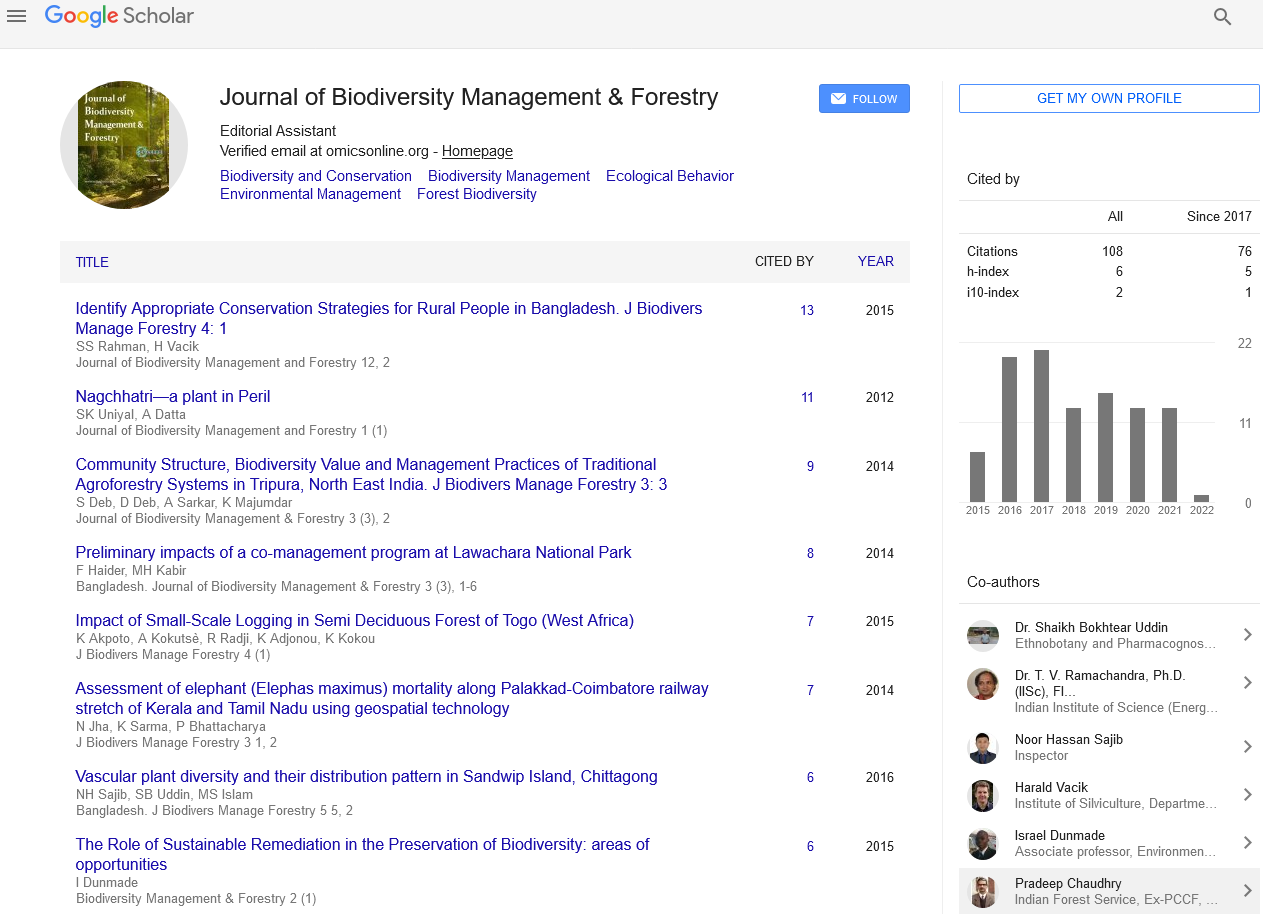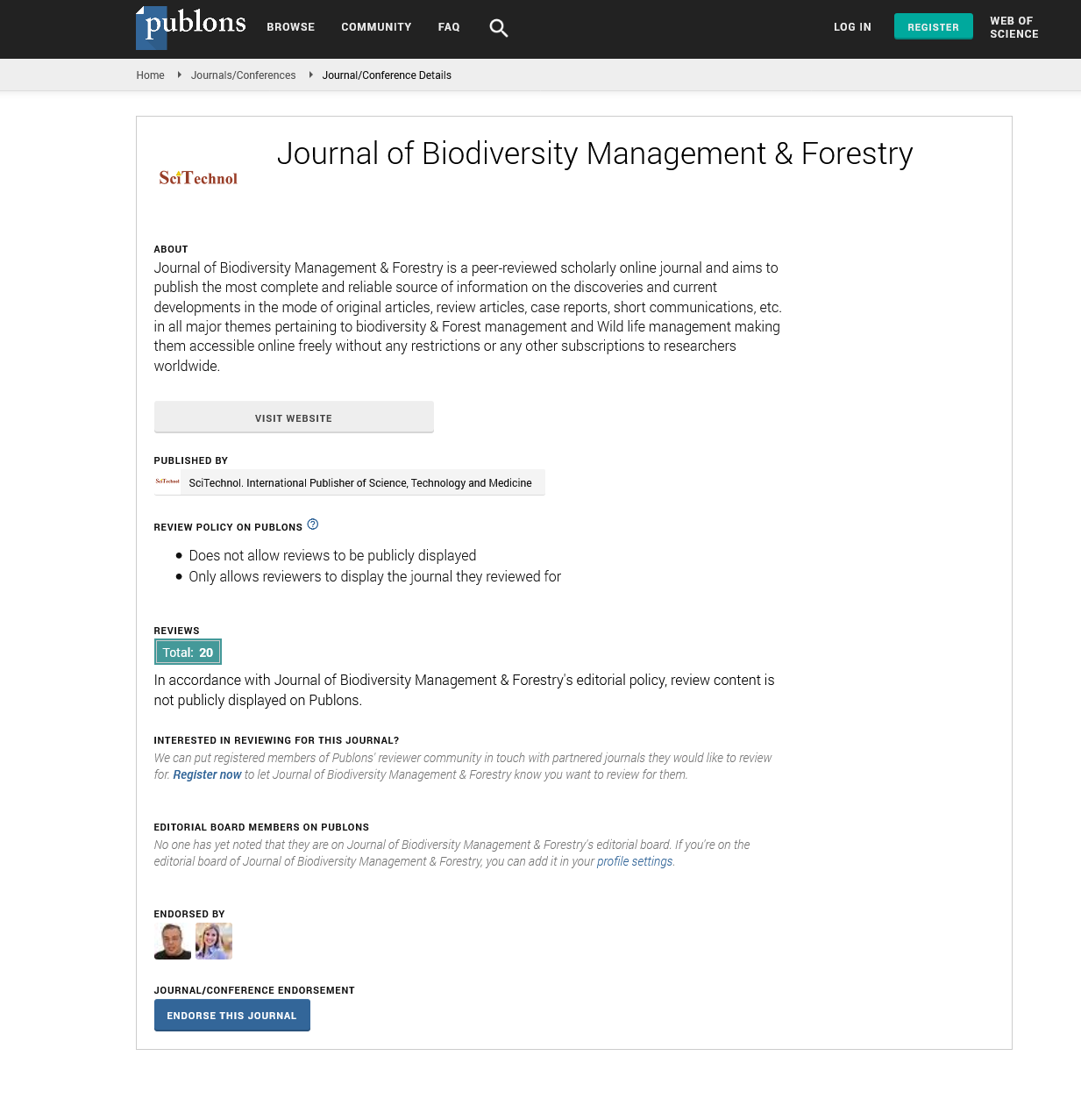The circular economy - A response to climate change
Dzintra Atstaja
Riga Stradins University, Latvia
: J Biodivers Manage Forestry
Abstract
Circular economy - an economic system aimed at eliminating waste and continuous use of resources. It includes sharing, reusing, repairing, renovating, renovating and recycling to create a closed system. All waste becomes a resource or raw material for the next process, thus contrasting with the traditional or linear economy, in which the production model is taking - make - use - throw away. Municipalities have the greatest influence on outcomes â?? by setting an example and shaping the environment. Considering Latvia's unique characteristics and the role of local governments in the circular economy, their importance has been established. This article will tell about the methodology development and results of the first Latvian Circular Economy Index. It is commendable that all Latvian municipalities have been evaluated. Self-assessment of municipalities and population surveys are included in the methodology. The resident's survey was conducted online (CAWI) using a closed, representative respondent panel. The survey asked residents about the municipalities and their own activities in the field of circular economy. The Circular Economy Index for municipalities, developed for the first time in Latvia, will provide an opportunity to self-assess the processes and results in the work of institutions, organizations and municipalities. It will also be possible to follow the dynamics of your performance by years or periods and compare it with the results of others. At the same time, it will be possible to receive expert recommendations on priority processes to be improved, as well as promote success stories and examples of good practice. Based on the self-assessment and index methodology, it will be possible to better understand the role of the circular economy in the work of institutions and organizations, in the performance of municipal functions, and in cooperation with interested parties. Recommendations for more responsible behaviour, support mechanisms and fundraising are available for municipalities.
Biography
Dzintra Atstaja is a distinguished lead researcher and professor at the faculty of social sciences at Riga Stradins University in Latvia. With extensive academic and research experience, she is recognized for her contributions to the fields of economics, sustainability, and social development. Professor Atstaja has been actively involved in interdisciplinary research projects both nationally and internationally, focusing on sustainable economic models, innovation in public administration, and the socio-economic impact of policy decisions. Her work is widely published in academic journals, and she is a sought-after speaker at international conferences. Through her teaching and mentorship, she continues to inspire the next generation of social science professionals and researchers.
 Spanish
Spanish  Chinese
Chinese  Russian
Russian  German
German  French
French  Japanese
Japanese  Portuguese
Portuguese  Hindi
Hindi 
